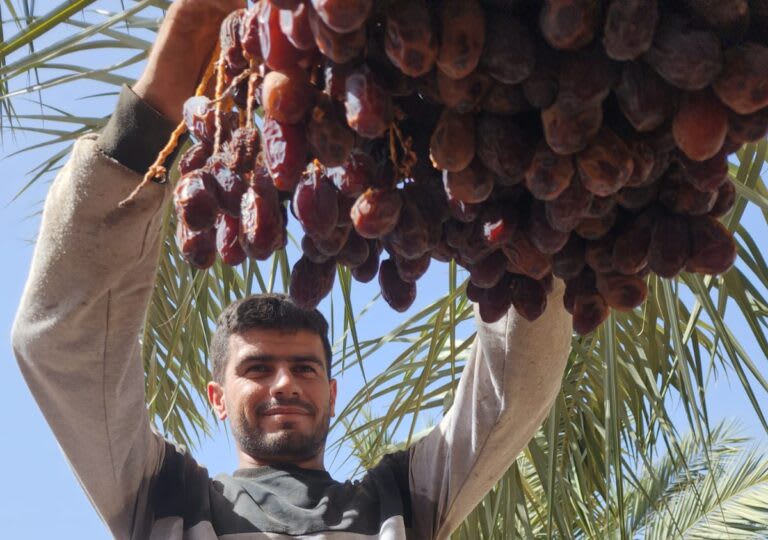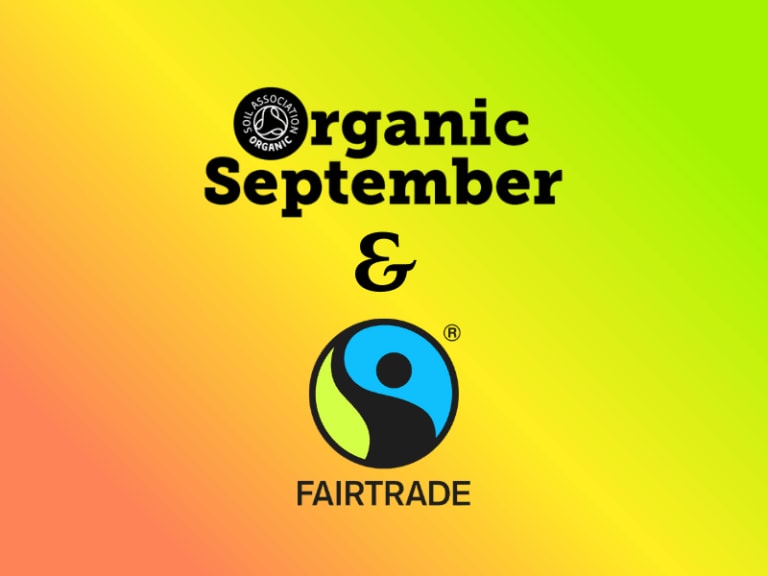
The Medjoul date harvest – from Jericho to Al Auja – is now underway in the Jordan Valley. For Palestinian farmers, this is the most important time of year, and the result of months of hard work caring for the palms in tough conditions.
The Jordan Valley was once full of citrus, bananas and other fruit orchards. Today, those are hard to come by, as water has been redirected to nearby settlements and the Ein al-Auja spring, which used to irrigate large areas of farmland, has almost dried up. Date palms are one of the few crops that can still grow here with the limited, and often saline, water available.
This year, the backdrop to the harvest is particularly difficult. Families near Ein al-Auja are regularly harassed and have their sheep and goats taken from them in raids involving settlers, police and soldiers. One of our suppliers is based near these communities and tells us how earlier this summer, Bedouin families who had lived there for decades were forced to dismantle their own homes and leave under threat from new settler outposts.
On top of this, harvest time brings in seasonal workers from across the West Bank, as the Medjoul sector has become a backbone of the Palestinian economy and a vital source of employment. But travel for these workers is often hampered by checkpoints, closures and permit restrictions, making daily journeys unpredictable and exhausting at the very moment when every pair of hands is needed in the groves.
And still, the harvest goes ahead. Across the valley, particularly around Jericho and al-Auja, farmers are bringing in the new season’s dates. The heatwave in August, while testing for those living and working there, has helped the fruit ripen to perfection – giving us the soft, fudgy Medjouls we know and love. These dates will soon be on their way to the UK, a reminder of what can still flourish in the hardest conditions.
Have you tried our fudgy Palestinian Medjoul dates yet?



